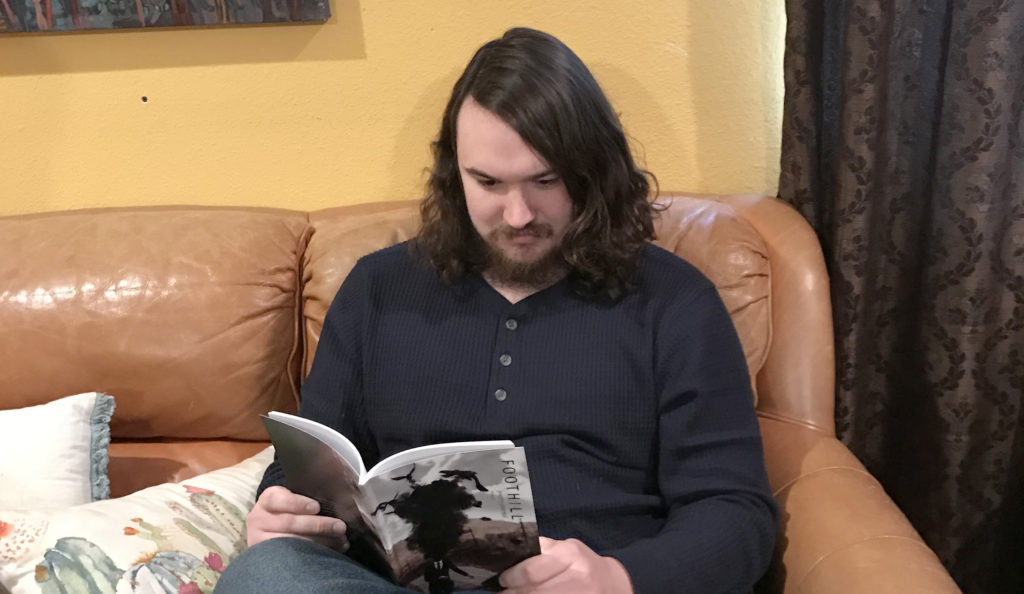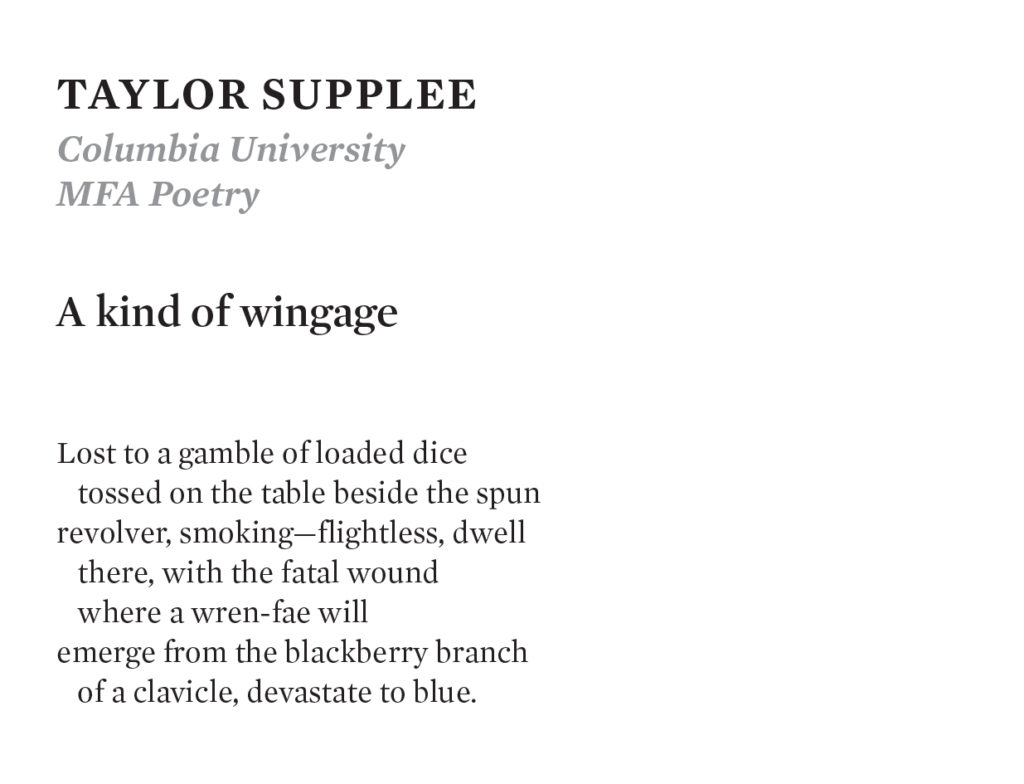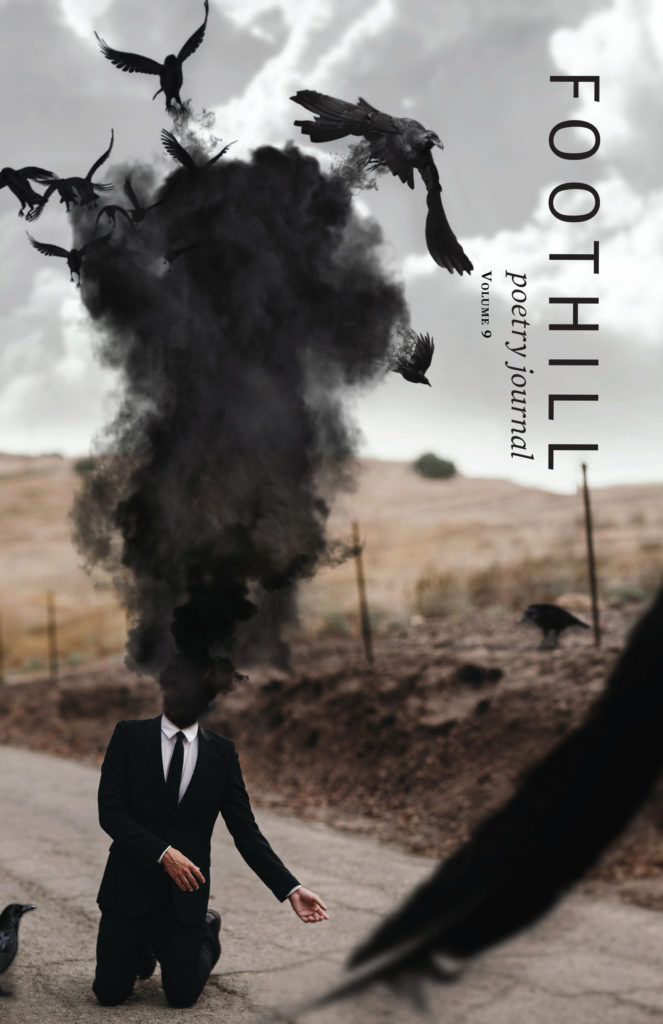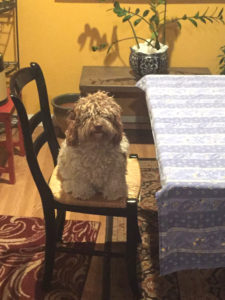Reading Taylor Supplee’s poem, “A kind of wingage”

The holidays are here! Skies are gray, rain is falling, and me? I’m cozied up by the fire with a copy of Foothill’s newest poetry journal. Given my interest in short form poetry, it feels like a good time to highlight one of the coolest (and shortest) poems in the journal this year. Here’s “A kind of wingage” by Taylor Supplee:

OK, so what is the point of this poem? I mean, sure, some dude got shot, bled out, and probably died. But what is it about? The first thing I am drawn to in this poem is this thing with the wren-fae. It’s a bizarre image. I mean, the wren is a bird, but a wren-fae? No clue. No bird the internet has heard of. I read Supplee’s use of “fae” here as a call attention to the fantastical. Think Tinkerbell from Peter Pan. Edmund Spenser’s The Faerie Queene. Cinderella’s Godmother. Except this time, Tinkerbell is also a stand in for blood pouring from a gunshot wound. This creates a strange contrast. On the one hand, we have terrible violence and death. On the other, we have an innocent little bird and some blackberries. It is both pretty and terrifying (much like our cover, which, unintentionally reflects so many of the poems the editorial board selected for the journal).

However, I hesitate to say that “death births new life” is the theme of this poem, which is the perspective this image first pulls me toward. With the understanding that this poem is intentionally crafted to lead to multiple interpretations, I would like to suggest that this poem presents a suicide. I will briefly expand on this idea. The “wingage” referred to in this poem is life—hence, Supplee’s use of “flightless” where “lifeless” would seem to make more sense. Supplee’s use of the wren-fae as a stand in for blood seems to confirm this idea too, since blood is the life of beings.
That life is taken by “a gamble of loaded dice.” Could this be a literal game of dice in which one person cheated, got caught, and died for it? Sure. That was how I read the poem the first couple times. That’s very “wild west,” and it’s a fun picture. Yet there is no shooter presented and that bugs me. Who tossed the dice? Why was there a gun already on the table? The only body present is the one bleeding out. So what happens when, prior to the shot, we picture a room with a solitary person in it? That’s much darker.
Instead of a rowdy game escalating and ending poorly, we have a person seated with a gun on a table and a decision: to throw the dice, or not. The knowledge they are loaded is fully possessed, because it’s their dice. They cast the dice, knowing how it will go. Maybe hoping for a miracle. None comes. They shoot themselves. And it’s the only moment of power they have—a moment where, before they die, they feel free. It’s a release from the place they have been trapped in—like a bird, flying away. Then, there is the hard turn, where they die, and the conclusion “devastate to blue” is the darkness closing in.
That’s a pretty scary interpretation, but it shines light on the difficulty a person going through depression experiences. Suicide feels like an escape; like a moment where life is under control, and that brief release must be bliss. But it ends, abruptly, and there’s nothing left. No colors. No sunshine. No birds flying. Just a gun, smoking on a table, and a dead body.
I like this poem because it tackles a heavy subject in a beautiful way, without actually glorifying the subject. We get a look inside the dead person’s thought process, but it’s creepy and scary. That’s a lot of work to do with 7 tiny lines of poetry and a title. There are a lot of poems like this in Foothill, on a ton of different subject (happier ones, too). Go check them out! We worked really hard to showcase these poems and I am exceptionally proud of our work.
You can also go listen to Suplee read “A kind of wingage.”
—Cassady O’Reilly-Hahn
A Moment of Zen:
Muddy Dog
His paws look like boots
as he bolts in from the rain,
tracking blobs of mud.

Share